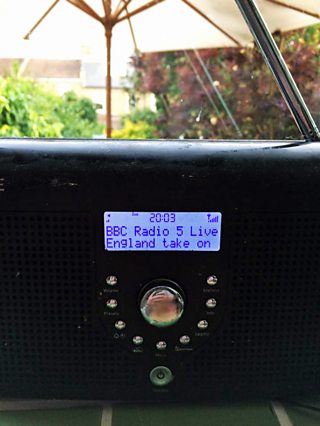Euro 2016 triggers the need for a confession: I hate football.
I’ve always hated football, ever since the other boys in my class at school laughed mercilessly at the patchwork gym bag my Mum had proudly made for me on her Singer sewing machine. I’ve long since learned to revel in my distinctiveness. But back then the drawstring bag, and the white PE kit I carried inside it for games lessons, attracted so much guffawing from my contemporaries that football and any kind of sporting pursuit has been linked to childhood trauma.
The PE kit was totally unsuitable for games lessons. The mud stains I managed to get caked all over it was largely because of my inability to spot the ball, or maintain the most straightforward of dribbles. Uncontrollable tears were also a feature of my games lessons, usually shed at the side of the pitch from where I would look on at my contemporaries, knees trembling, wondering where I had been when the love-of-football gene had been handed out.
Such detail may at first seem trifling. This blog is not the place for confessionals nor sob stories, but back-stories are important, because what I notice is that 35 years after the childhood trauma that killed off any subsequent interest in football may well have healed. I may well be catching up on my peers. I may now, thanks to combined influence of colleagues at work and Βι¶ΉΤΌΕΔ Radio Five Live, I may well be … getting into football. Odd.
It all began with the Eurovision Song Contest. The Eurovision is an event I understand, one I’ve stood by since 1981 (even through the ‘dark’ 1990s) and, to this day, still get ridiculously excited about every single year. I’m one of an army of hardcore fans (and passionate defenders).

Eurovision 2016 in Stockholm's Globen. My kind of football.
This passion provokes a strange kind of bewilderment amongst my football-loving colleagues. Whenever I talk about Eurovision, they display a look on their faces as though I’ve brought my (I still have it, by the way) to work, and whipped it out during a serious meeting about metrics.
What is it that confuses them about Eurovision? What is it that makes them smile about my nerdy fascination with broadcasting history? Is it the same thing that makes me roll my eyes about the painstaking detail some of them pick over about the ‘beautiful game’? And, if I could understand the answer to those questions, might I get a taste of the thrills and spills those same colleagues express when they enter into the post-match analysis every Monday morning during the football season?
When I started asking myself those questions I began to notice something a little alarming: I was beginning to get interested in something I’d hitherto completely overlooked. So the implicit private challenge was unwittingly set: could I manage to sustain my concentration for an entire football match. And, if I could do that, might I grow to like the game?
It was worth a shot.

I acknowledge one obvious block very early on in proceedings: my partner, Simon. I propose a change to our usual weekend TV viewing habits with a tentative but hopeful, “but I want to watch the England match for research purposes.” Silence. He reluctantly agrees, trying desperately to communicate his displeasure by forcefully keying ‘115’ on the Sky Remote. We sit. We watch. We leap up and down when England scores. And we sigh when Russia equalise.*
Post-England vs. Russia I’m aware of two things: firstly, I’m not hooked, haven’t been swept away by the emotion and don’t see a need to resort to dramatic measures to ensure future enjoyment. On the plus side, it hasn’t been an agonising 90 minutes. I haven’t been distracted by my mobile phone, I haven’t wanted to participate in a discussion online at the same time and I haven’t flicked over to see what’s on another channel. My most significant learning from this first toe in the water? Getting ‘buy-in’ from my significant other watching any non-England matches is going to be a tough number – not so much low-hanging fruit, more bare branches on a petrified tree.
So, the following night I opt for an alternative option: live commentary on Five Live. It’s here in the kitchen, methodically preparing dinner in between surreptitious sips of cheap red wine, that I hear something different: the sound of people somewhere else in the world getting excited about something I cannot see. There is nothing more riveting than hearing someone else’s fun someplace else described by people I can’t see. In that respect, football on the radio is not unlike Radio 3’s Live in Concert – there is nothing I like better than ‘dropping in’ on somebody else’s party.
This is, it seems to me as I pour myself another glass of wine on my own in the kitchen, my gateway to football. The commentary seems jumbled and packed full of technical terms I don’t understand; I can’t picture the images in my head quick enough to follow the action on the pitch.
I’m struggling, but remain committed to the challenge, remembering a piece of advice a different colleague gave me when attending a Shakespeare: trust yourself, listen to the lines, but don’t get bogged down in the detail; you’ll be surprised how easily to follow what’s going on. Quickly, I get drawn in. My mood elevates, cushioned by a bed of gentle roars from an excited crowd somewhere over the water and far away.
This is when I realise my guard might be down. I’m swept along by the excitement of a distant crowd, an unseen image, and the raw passion of broadcasters. In this way, I’m transported to another place in the same messrs Klein, Derham and Trelawny do when they describe proceedings at the Βι¶ΉΤΌΕΔ Proms on Radio 3. My delayed entry into watching football seems to be via broadcast, being present with thousands, possibly even millions, of other people: participating in a shared experience.
I relay all of this to my partner on a daily basis. As my confidence grows, I even suggest, “Maybe we could watch the match tonight?” This is met with the inevitable question: “What have you become?” Still conscious he’s not as willing to participate in my personal challenge with the same zeal I am, I turn to Five Live whenever I can. This is my chance to ‘dip in’ to what’s going on in much the same way my A-Level German teacher suggested dipping into German novels from time to time to boost my comprehension and translation skills.
When I go on a last-minute unexpected lone trip to Budapest, I set aside a night to find a (quiet) bar where I can watch a game. This is when I realise something quite surprising: I’m actually looking forward to the prospect. In the space of a handful of matches I’ve gone from fearing the game I was traumatised by as a kid, to now ‘rather looking forward to it’. Now I sit at a table at a bar in central sunny Budapest, watching Hungary play Iceland on the screen on my left, and observing local fans at the bar across the road look on proceedings with a mixture of horror and excitement. It is a delicious experience: a televised event making me feel part of a continent-wide moment.
I return from Budapest with renewed confidence and a spring in my step. Like all good journeys, I’ve been on a personal journey at the same time. I am now someone who ‘watches the football’. Proud of this, I seek to comment on colleagues’ Facebook feeds whenever I am engaging with the game, as if to prove to them that I am good as my word. Sometimes I post pictures of me watching a game so the proof is irrefutable. I think it’s turned into a bit of a habit now.
My new status as viewer is confirmed during the Slovakia vs England match, a combination of TV viewing (on ITV) and listening on Five Live. Needing to watch live (and not via live-pause on my PVR has become important all of a sudden), not missing a moment when I go to the bathroom similarly so. Me and the partner (by this point he’s insisted he’ll only watch England games) now find ourselves commenting on strategy, uttering terminology like ‘passing’ and ‘possession’, and commenting on tackles. My tried and tested description seems to be, “it’s all a bit messy, isn’t it?” This also boosts my confidence, demonstrated in the way I relay our rookie assessments to my colleagues the morning after. Do those views have any validity? Do they trigger any further clarification amongst those more in the know? It seems that they do. Football doesn’t seem all that difficult to understand. I’m met with wide eyes and one or two dropped jaws.
I’m not a convert. I’m not a fan. A lot of the time I’m watching and listening and sort of understanding what’s going on but not really being sure whether I really do understand it. Last night’s England match – listened to at first on Five Live sees me race to break the early score to the partner who in turn leaps to switch over to Βι¶ΉΤΌΕΔ One. Disappointment follows 37 seconds later.**
But it gives me an ‘in’ with my colleagues. I can empathise with them as they shuffle into the office this morning. Even dipping my toe in the water makes me feel part of the pack. Actually playing a game of football may well be a long way off, but I may well be en route to a new viewing obsession. That journey has started because of Five Live. As to whether I shall be continuing that journey alone or in the company of my partner, I've yet to negotiate. I'll get back to you.
* I can’t remember any other occasion when I’ve needed to use the word ‘equalise’ in anything I’ve written before. In the spirit of full transparency, I’m am excited by this.
** I’m amazed I can even recall the time Iceland equalised.
